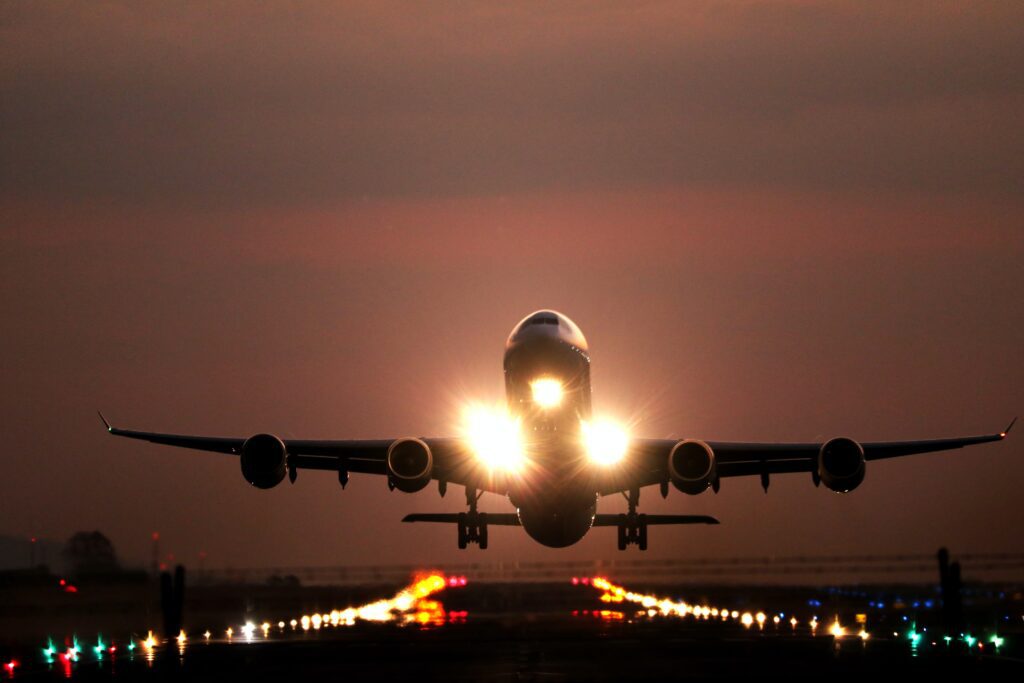Language Proficiency Test
Flight attendant language test
Curious about the language test for flight attendants?
It’s a phone-based assessment where you’ll chat with a language specialist, answer questions, and role-play scenarios. The test checks your speaking clarity and fluency. You might read passenger announcements and simulate in-flight dialogs.


General tips
- If you look at employment sites, you’ll notice that many airlines expect you to speak a foreign language fluently. Fluently meaning a level 4 or 5 = native speaker (depending on the airline). Many airlines will require you to be at this level in order to claim that you speak foreign language.
- And of course, if you’re asked a question in the foreign language you’re trying to qualify for, answer in that foreign language!
What to expect
- The test is usually done over the phone. Sometimes a supervisor is involved, but not always.
- You’ll talk with a language specialist, answer questions, and act out different scenarios.
- Your speech needs to be clear and fluent to be able to pass.
- In one part of the test, you’ll be asked to read a passenger announcement. You’ll be expected to read the announcement clearly so passengers would be able to understand.
- The second part is like a simulated conversation with a passenger. You’ll be presented with a situation and you’ll be expected to carry a conversation about the given situation with the other person. Again, you’ll be expected to speak fluently and clearly and be able to explain the situation to the other person.




What questions will you be asked?
It’s difficult to determine exactly what questions you’ll be asked. The actual questions will be determined by the language specialist that will be conducting the test.
But, in general, the questions will fall into 3 categories:
- General interview questions
- These questions would include questions such as “Tell me about yourself”
- Conversational questions
- These questions focus on questions a passenger might ask. The specialist is looking to see if you, not only can explain what the passenger needs to do, but also why it’s important for the passenger to do it.
- The difficulty with these questions is that the conversation could change depending on what happens prior in the conversation.
- A possible example would be:
- Asking a passenger to please be quiet during the on board announcements
- “Why does the passenger need to put on there seat belt during take off”
- Job related flight attendant questions
- You may be asked to read a passenger announcement
- And in addition, there may be questions that only occur on a plane (an airline specific scenario).
- If you’re asked one of these questions, the specialist could be trying to determine if you know the industry vocabulary.
Will you need to know "inflight vocabulary"?
YES!
- You might be fluent enough in a language to be able to hold a conversation with people on the street, but the airline industry has its own vocabulary. If your “inflight vocabulary” is limited, you really need to work on it. It would be horrible if you’re a level 5 speaker and you fail because you couldn’t hold a conversation with a passenger because you missed some aircraft terminology.
- It’s not as though “inflight vocabulary” isn’t required, it will come into play during other parts of the interview process, so it’s worth learning this “inflight vocabulary” before they test you.
- The test will most likely include scenarios that happen specifically on a plane. So if you get into a situational conversation about an airline specific scenario and you don’t know the vocabulary, you’re at a definite disadvantage. You need to learn airline terminology before you take the test!



Can you retake the test?
YES!
Sadly, being fluent in a language doesn’t guarantee you the job. The person grading you might be from a different region and not like the way you talk. But don’t worry! You can retake the test.
If you get hired for a job that doesn’t have a language requirement, you can take the test after you’ve been hired. Or you’ll have to wait for another chance.
And if you don’t know another language, that’s okay! Some airlines have programs to teach you. Here’s a link to United Airlines Language program from their 2018 flight attendant handbook. It may be old, but it will give you an idea of what they have!
United airlines language test
What is a language qualified flight attendant?
Language qualified flight attendants must demonstrate the ability to speak and read the qualified language at a business level, and be able interpret announcements that are made in English.
What questions are asked in the United Language Test
Questions typically vary with the specific language specialist, but expect a variety of questions from everyday experiences as well as questions pertaining to work related duties.
For example:
- Several basic interview questions like “Tell me about yourself”.
Then going into work related questions:
- Can you explain to a passenger that they must put away their laptop for landing and why?
- Can you explain that the flight is being diverted, why it is diverted and what will happen next?
- Can you quickly and correctly translate a PA announcement from the captain?
Does United only hire bilingual flight attendants?
No, in fact you can be hired for a flight attendant opening that doesn’t have any foreign language requirement, then sometime in the future you can take the language test.
And the reverse is also possible.
At United, there is no limit to the number of languages used in which a Flight Attendant may become Language Qualified.
Of course in both cases, in order to become Language Qualified, a Flight Attendant must pass a test demonstrating a minimum level of language proficiency, as determined by United.




Air Canada language test
You’ll be asked a series of typical interview questions, some specific to flight attendant type scenarios. Some questions will be in English and some will be in French. Always answer the question (respond) in the language the question was asked in.
The language specialist will ask you what language you want to start with. You’ll then get a lot of basic questions such as:
- Tell me about yourself
- What is your hobby and can you tell me a bit about it?
- etc…
The questions will depend on your interviewer (language specialist).
- Expect them to focus on, and spend most of their time on your second language, not your first language.
- The test is typically conducted as a conversation, where the next question builds on how you answered previous questions.
If you’re fluent in English and French you will be fine. Yes, you might be nervous, but just take your time to answer. The test should last about 15 to 20 minutes.
Here are Air Canada’s fluent level standards for each of their levels:
Level 1: Basic French
- knows basic words and phrases
- struggles with the flow of having a conversation
Level 2: Speaks French
- Has trouble with some words and vocabulary.
- They might use occasional English words or make lots of grammar errors
Level 3: Fluent (You need at least a level 3 to pass)
- has some minor grammar errors
Level 4: Perfectly fluent, no errors.
Choosing the Right Language to Study
So, which language should you focus on?
So, which language should you focus on? Well, it depends on the airline you want to join.
For Air Canada, they like it if you’re fluent in both English and French, but they also value other languages.
United Airlines flies to Asia, so knowing languages like Japanese, Korean, or Chinese can be super helpful.
American Airlines often flies to South America, so speaking Spanish and Portuguese is a plus. They even hire flight attendants who know languages like Hebrew, Greek, Hindi, Dutch, Japanese, and Korean.
So you need to do some research on the airline you’re interested in to figure out which languages they prefer. Keep in mind that the demand for specific languages can change. You’ll have to check online job listings to see if there’s a job for your language.

Advantages and (Yes) disadvantages of Knowing More Than One Language

Advantages
Having the skill to speak more than one language can give you a boost in becoming a flight attendant. It puts you at the top of the list for the next job opening.
Why does it help you?
- Airlines are always looking for people who can speak more than one language, so they will do almost anything to bring you into the company
- There will be less competition for openings that have a language requirement, making it easier for you to get the position
- You will be able to apply for more positions than the average applicant. You‘ll be able to apply for positions that have language requirements as well as ones that don’t
Knowing a second language doesn’t guarantee you’ll get the job, but it sure helps you stand out.
Another perk of speaking many languages?
You could earn more money. Different airlines do it differently, but you might get around $2.00 more per hour as the designated speaker on a flight. Being the designated speaker means you’re the best at that (LOD) language on that flight. Airlines call it the “language of destination” (LOD). So if you’re flying to France, the LOD is French, and if you’re going to Germany, it’s German.
Even if you’re not sure how good you are at your second language, apply anyway! The airline will test your fluency after the interviews to find out if you’re a good fit.
You’ll find information about the language fluency test above in this article.
The last plus? You could travel on more international flights.
Disadvantages
You might end up doing the same international route for a while. If your airline doesn’t have enough fluent speakers who speak the language you know, you could be doing that same international flight again and again.
And, you might not always get the trip you want. If your airline doesn’t have enough fluent speakers, they could limit your schedule so you’re on call for international flights that depart at odd hours, like 4 AM.
